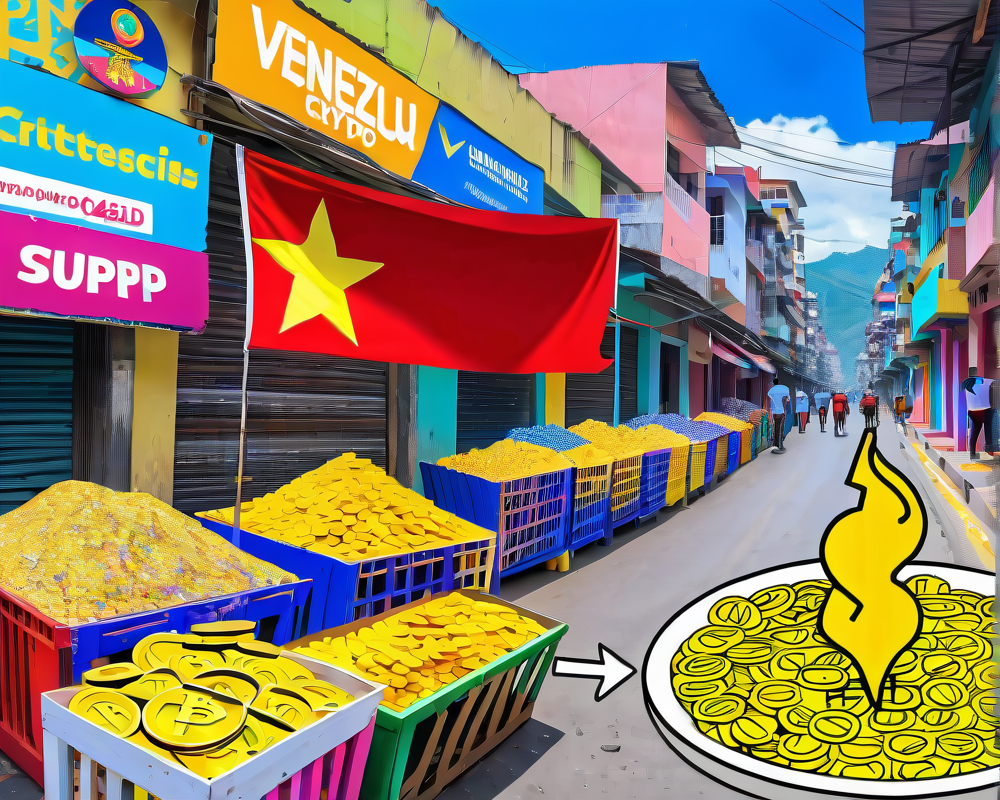The Rise of Bitcoin amidst Economic Turmoil
Venezuela has become the poster child for economic disaster, experiencing inflation rates that make your head spin—80,000% back in December 2018, skyrocketing to a staggering 139,000% in just a short time! As if that wasn’t frightening enough, U.S. sanctions against the state-owned oil company have only compounded the suffering. Citizens are now clawing for the most basic necessities, which has remarkably led them to embrace Bitcoin and other cryptocurrencies. Talk about a financial paradox!
Bitcoin: The Currency of Last Resort
In the tumultuous landscape of Venezuela’s economy, Bitcoin has transformed from an underground curiosity to a lifeline. Reports from crypto exchanges indicate that over 35,000 BTC was traded for bolívar in 2018. And in early 2019, we saw trading volumes soar beyond anything from 2018. It’s quite the crypto wildlife documentary—only this time, it’s the struggling Venezuelan population searching for digital ‘shelter’ to shield themselves from hyperinflation.
For instance, January 2019 alone saw a hefty increase in trading activity on LocalBitcoins, reaching 10,805 BTC by mid-February, which can only be described as a glorious spike. This isn’t merely a case of passing interest; it’s survival of the fittest in the crypto realm!
Cross-Border Crypto: Government Regulation vs. Citizen Adaptation
You might think the Maduro government would crack down completely on crypto—after all, they did have their share of issues with mining in the past. However, in a twist worthy of a Venezuelan telenovela, their current strategy seems to be to leverage cryptocurrencies in a bid to stabilize their crumbling economy. The National Superintendency of Crypto Assets and Related Activities (SUNACRIP) has introduced new regulations on crypto remittances—that’s right, they want a piece of the action too!
In a land where hyperinflation reigns supreme, the government is now implementing crypto-related taxes and regulations. It’s as if they’re saying, “Hey, we’re joining this party whether you like it or not!” Who knew desperation could be the catalyst for innovation? Not to mention, the first crypto ATM has opened in Caracas! Looks like the future of money is evolving faster than you can say ‘blockchain’!
A Broader Trend: Crypto Adoption in Struggling Economies
Venezuela isn’t alone in this crypto embrace; other nations like Turkey, India, and Iran are also hopping on the digital currency bandwagon as their economies slip into chaos. Turkey, for instance, faced a record low of the lira that ignited a surge in Bitcoin trading. Even Nigeria, often overlooked, is witnessing a notable interest in crypto trading amidst economic instability.
This ‘trend’ isn’t accidental; it’s a calculated pivot by citizens in nations grappling with financial hardship. If there’s anything we can gather from this situation, it’s that when people perceive instability in their local currencies, they’re more inclined to invest and trade in cryptocurrencies that promise something akin to sustainability.
Taking Stock: A Cautionary Note for the Crypto Future
While it’s clear that financial crises ignite a fire under crypto adoption, let’s not make the mistake of thinking this is a fast track to glory and riches for everyone involved. The Bitcoin market is still relatively immature and susceptible to fluctuating trends. Even in crypto-heavy Venezuela, the spikes in trading aren’t anywhere near the bull runs of the past.
So, as we watch the chaos unfold, it’s essential to remember that with great power comes great responsibility—especially when that power comes from the world of crypto. Will nations facing financial apocalypse continue to lean on Bitcoin and its friends as a way out? Only time will tell, but one thing’s for sure: these turbulent times are giving cryptocurrency a surprisingly mainstream platform.




